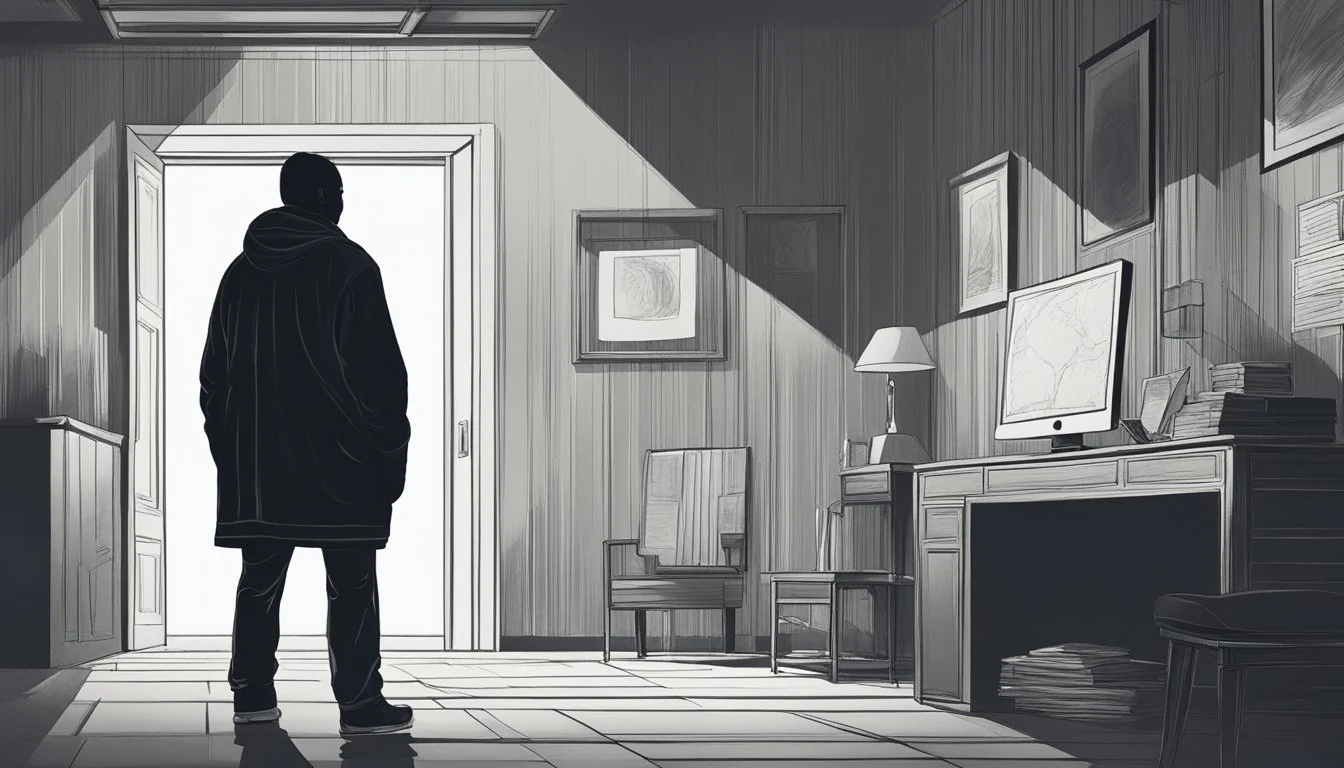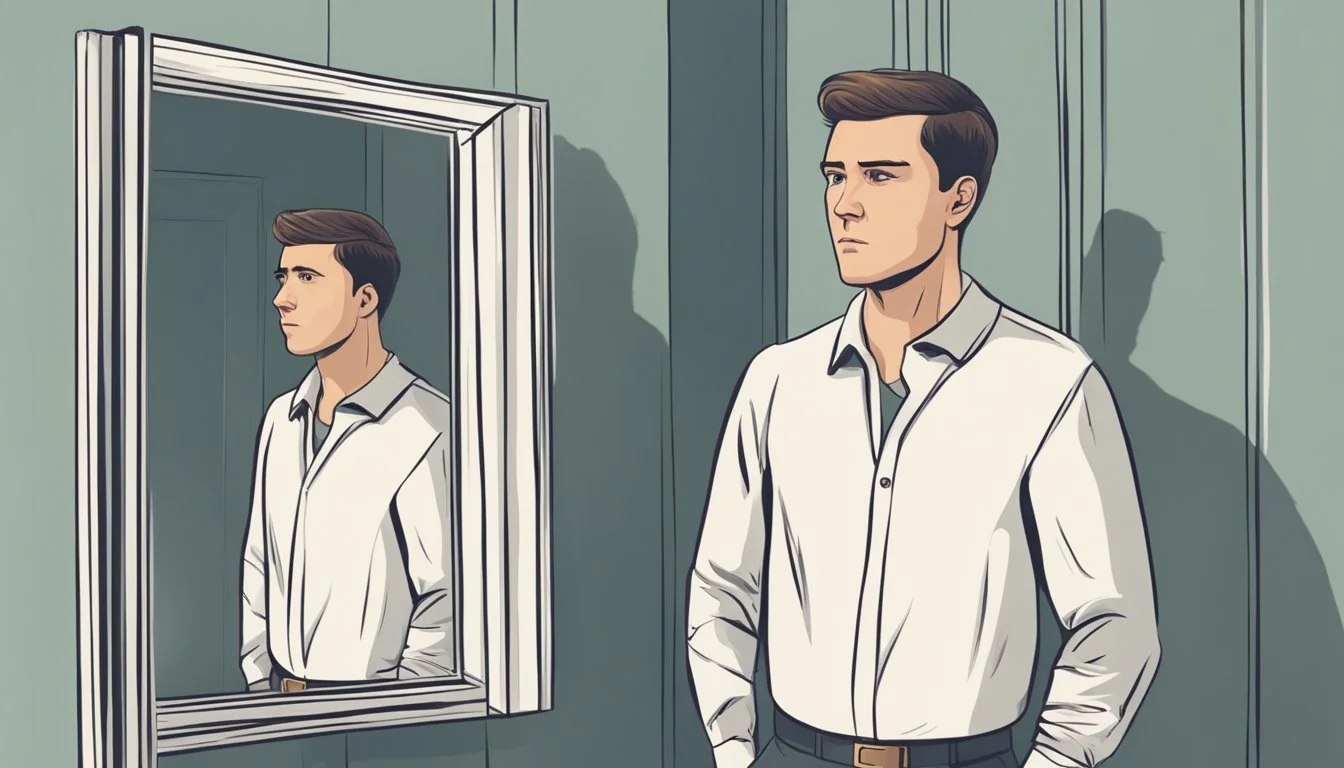12 Celebrity Quotes About Living with Bipolar Disorder
Insights from Stars on Mental Health Challenges
Bipolar disorder affects millions of people worldwide, including many well-known celebrities. These public figures have courageously shared their experiences living with the condition, helping to reduce stigma and raise awareness.
Their candid quotes offer valuable insights into the realities of bipolar disorder and can provide comfort to others facing similar challenges. By speaking openly about their struggles and triumphs, these celebrities demonstrate that it's possible to lead successful lives while managing bipolar disorder. Their words serve as a reminder that mental health conditions do not define a person's worth or potential.
1) "Sometimes I feel like I'm a perpetually wounded human." - Demi Lovato
Demi Lovato's candid statement reflects the ongoing challenges of living with bipolar disorder. The singer-actor has been open about their mental health struggles since their diagnosis in 2011.
Lovato's words highlight the persistent nature of bipolar symptoms. Even with treatment, individuals may experience recurring episodes of depression or mania.
This quote resonates with many who face similar challenges. It captures the sense of vulnerability and pain that can accompany the condition.
Lovato has used their platform to raise awareness about mental health. They've spoken about the importance of seeking help and reducing stigma surrounding bipolar disorder.
Their honesty has helped many fans feel less alone in their own struggles. By sharing personal experiences, Lovato has become an influential advocate for mental health awareness.
2) "Bipolar is part of my makeup." - Catherine Zeta-Jones
Catherine Zeta-Jones, the Oscar-winning actress, has been open about her bipolar II disorder diagnosis since 2011. Her statement reflects a profound acceptance of her condition as an integral part of who she is.
Zeta-Jones has spoken candidly about her experiences with bipolar disorder in various interviews. She emphasizes the importance of seeking help and maintaining treatment to manage the condition effectively.
The actress's journey with bipolar disorder has included periods of proactive treatment. In 2013, she voluntarily checked into a healthcare facility for a brief stay to manage her symptoms.
Zeta-Jones has used her platform to raise awareness about mental health issues. Her openness has helped reduce stigma surrounding bipolar disorder and encouraged others to seek help.
By embracing her diagnosis as part of her "makeup," Zeta-Jones demonstrates a positive approach to living with bipolar disorder. Her attitude highlights the possibility of leading a successful life while managing the condition.
3) "We need to break the stigma and silence." - Mariah Carey
Mariah Carey, the iconic singer-songwriter, has been open about her bipolar disorder diagnosis. She received her diagnosis in 2001 but didn't publicly discuss it until 2018.
Carey's statement emphasizes the importance of speaking out about mental health issues. By breaking the silence, she aims to reduce the stigma surrounding bipolar disorder and other mental health conditions.
The Grammy-winning artist's decision to share her experience has helped raise awareness about bipolar disorder. Her openness encourages others to seek help and support without shame or fear of judgment.
Carey's advocacy extends beyond her personal story. She actively supports mental health initiatives and uses her platform to promote understanding and acceptance of mental health challenges.
Through her words and actions, Carey demonstrates that living with bipolar disorder doesn't define a person or limit their potential for success. Her message inspires others to embrace their full selves and seek the support they need.
4) "Medication helps me function and live." - Carrie Fisher
Carrie Fisher, renowned actress and writer, was open about her experiences with bipolar disorder. She spoke candidly about the role medication played in managing her condition.
Fisher emphasized how crucial medication was for her daily functioning. She described it as a necessary tool that allowed her to navigate life with bipolar disorder.
The Star Wars icon's statement highlights the positive impact proper treatment can have. For many individuals with bipolar disorder, medication is a key component of their management plan.
Fisher's openness helped reduce stigma surrounding mental health treatment. By sharing her experiences, she encouraged others to seek help and consider medication as a viable option.
Her words underscore the importance of finding effective treatments for mental health conditions. Fisher's perspective reflects the reality that medication can be life-changing for some people with bipolar disorder.
5) "Mental illness is nothing to be ashamed of." - Halsey
Halsey, the renowned singer-songwriter, has been open about her bipolar disorder diagnosis. She received the news at age 17 and has since become an advocate for mental health awareness.
The artist's statement emphasizes the importance of destigmatizing mental illness. By asserting that there's no shame in having a mental health condition, Halsey encourages others to seek help and support.
Halsey has used her platform to discuss her experiences with bipolar disorder. She's shared insights about managing symptoms and maintaining a successful career while living with the condition.
The singer's openness has resonated with many fans who also struggle with mental health issues. Her willingness to speak out has helped foster a more accepting environment for discussions about mental illness.
Through her music and public statements, Halsey continues to challenge societal perceptions of mental health. She demonstrates that individuals with bipolar disorder can lead fulfilling lives and achieve their goals.
6) "The highs and lows are extreme." - Mel Gibson
Mel Gibson, renowned actor and filmmaker, has spoken candidly about his experience with bipolar disorder. His statement highlights the intense nature of mood swings associated with the condition.
Gibson's description of extreme highs and lows aligns with the clinical understanding of bipolar disorder. During manic episodes, individuals may feel euphoric, energetic, and capable of anything.
Conversely, depressive episodes can bring profound sadness, hopelessness, and lack of energy. These dramatic shifts in mood and behavior can significantly impact daily life and relationships.
Gibson's openness about his struggles has helped raise awareness about bipolar disorder. By sharing his experiences, he contributes to reducing stigma surrounding mental health issues.
The actor's journey with bipolar disorder has been well-documented in media reports. He has sought treatment and worked to manage his condition over the years.
Gibson's quote underscores the challenging nature of living with bipolar disorder. It emphasizes the importance of proper diagnosis, treatment, and support for those affected by the condition.
7) "I want people to know there is help." - Sinéad O'Connor
Sinéad O'Connor, the Irish singer-songwriter, spoke openly about her bipolar disorder diagnosis. She emphasized the importance of seeking help and treatment for mental health conditions.
O'Connor's statement reflects her desire to raise awareness and reduce stigma surrounding bipolar disorder. By sharing her own experiences, she aimed to encourage others to seek support.
The artist's candid approach to discussing mental health helped shed light on the challenges faced by individuals with bipolar disorder. She used her platform to promote understanding and compassion.
O'Connor's message underscores the availability of resources and treatment options for those living with bipolar disorder. Her words serve as a reminder that help is accessible and that recovery is possible.
Through her advocacy, O'Connor contributed to the ongoing conversation about mental health in the public sphere. Her openness inspired others to speak up and seek assistance when needed.
8) "It's a mystery and challenge every day." - Maurice Benard
Maurice Benard, known for his role as Sonny Corinthos on "General Hospital," has been open about his bipolar disorder diagnosis. The actor's statement reflects the unpredictable nature of living with this condition.
Benard's quote highlights the daily uncertainties that individuals with bipolar disorder face. Each day brings new challenges as mood fluctuations can occur unexpectedly.
The "mystery" Benard mentions may refer to the often elusive triggers for mood episodes. People with bipolar disorder sometimes struggle to identify what causes their shifts in mood or energy levels.
Despite the difficulties, Benard has continued his successful acting career while managing his condition. He has become an advocate for mental health awareness, using his platform to educate others about bipolar disorder.
Benard's perspective emphasizes the ongoing nature of living with bipolar disorder. It's not a one-time obstacle to overcome, but a constant presence that requires daily management and adaptation.
9) "I'm living proof that you can go on." - Richard Dreyfuss
Richard Dreyfuss, the Academy Award-winning actor, has been open about his journey with bipolar disorder. His quote highlights the resilience and hope that individuals with this condition can experience.
Dreyfuss was diagnosed with bipolar disorder in his late 40s. Prior to his diagnosis, he struggled with mood swings and erratic behavior that affected his personal and professional life.
After seeking treatment and learning to manage his condition, Dreyfuss found stability and continued success in his acting career. He has become an advocate for mental health awareness and reducing stigma.
The actor's statement emphasizes the possibility of living a fulfilling life with bipolar disorder. It serves as encouragement for others facing similar challenges.
Dreyfuss has spoken at mental health events and shared his experiences in interviews. He stresses the importance of seeking help and adhering to treatment plans.
His openness about bipolar disorder has helped raise awareness and inspire others to seek support. Dreyfuss's story demonstrates that with proper care and management, individuals can thrive despite their diagnosis.
10) "I am not crazy but I have a bipolar condition." - Kurt Cobain
Kurt Cobain, the iconic frontman of Nirvana, struggled with bipolar disorder throughout his life. His candid statement reflects the frustration many individuals with bipolar disorder experience when faced with societal stigma.
Cobain's words highlight the distinction between mental illness and personal identity. By asserting that he is not "crazy," he challenges misconceptions about bipolar disorder and emphasizes that it is a medical condition.
The quote demonstrates Cobain's self-awareness and acceptance of his diagnosis. It shows his effort to educate others about the nature of bipolar disorder and combat harmful stereotypes.
Cobain's openness about his condition helped bring attention to mental health issues in the music industry. His honesty paved the way for other celebrities to speak out about their own experiences with bipolar disorder.
Despite his struggles, Cobain's creative genius and impact on music remain undeniable. His legacy continues to inspire discussions about mental health and the importance of seeking help.
11) "I urge you to seek treatment." - Linda Hamilton
Linda Hamilton, best known for her iconic role as Sarah Connor in the Terminator franchise, has been open about her experiences with bipolar disorder. The actress received her diagnosis in her 40s after years of struggling with the condition.
Hamilton's quote emphasizes the importance of seeking professional help for mental health issues. She has spoken candidly about how proper treatment significantly improved her quality of life and overall well-being.
The actress has shared that medication and therapy played crucial roles in managing her symptoms. She credits these interventions with helping her regain stability and control over her life.
Hamilton's advocacy for mental health awareness extends beyond her personal experiences. She has used her platform to encourage others facing similar challenges to reach out for support and not suffer in silence.
By urging others to seek treatment, Hamilton highlights the effectiveness of professional help in managing bipolar disorder. Her message serves as a powerful reminder that with proper care, individuals can lead fulfilling lives despite their diagnosis.
12) "You can manage it with a good support system." - Pete Wentz
Pete Wentz, bassist and lyricist for the band Fall Out Boy, has been open about his journey with bipolar disorder. His quote emphasizes the importance of having a strong support network when managing the condition.
Wentz was diagnosed with bipolar disorder in his early twenties. He has spoken about the challenges he faced, including manic episodes and depression. Through his experiences, he learned the value of a reliable support system.
The musician credits his family, friends, and bandmates for helping him navigate the ups and downs of bipolar disorder. He believes that surrounding oneself with understanding and supportive people is crucial for managing the condition effectively.
Wentz's statement highlights the role of a support system in providing emotional stability and practical assistance. This network can include loved ones, mental health professionals, and support groups.
By sharing his perspective, Wentz contributes to reducing stigma around bipolar disorder. He encourages others to seek help and build a strong support system to better manage their mental health.
Understanding Bipolar Disorder
Bipolar disorder is a complex mental health condition characterized by extreme mood swings. It affects millions of people worldwide, including many celebrities who have openly shared their experiences.
Symptoms and Diagnosis
Bipolar disorder manifests through distinct episodes of mania and depression. Manic episodes involve elevated mood, increased energy, and reduced need for sleep. Individuals may engage in risky behaviors or experience racing thoughts.
Depressive episodes bring profound sadness, loss of interest in activities, and changes in sleep and appetite. Some people experience mixed episodes with symptoms of both mania and depression simultaneously.
Diagnosis requires a comprehensive evaluation by a mental health professional. They assess symptoms, duration, and impact on daily functioning. Bipolar I involves full manic episodes, while Bipolar II features hypomanic episodes and major depression.
Treatment and Management
Effective treatment for bipolar disorder typically involves a combination of medication and psychotherapy. Mood stabilizers like lithium are often prescribed to prevent manic and depressive episodes.
Psychotherapy, such as cognitive-behavioral therapy, helps individuals recognize triggers and develop coping strategies. Regular sleep patterns and stress management are crucial for stability.
Many people with bipolar disorder lead fulfilling lives with proper treatment. Medication adherence, therapy participation, and lifestyle adjustments play key roles in managing the condition. Support from family and friends can also significantly impact recovery and long-term wellness.
Challenges Celebrities Face
Celebrities with bipolar disorder confront unique obstacles in managing their condition while in the public eye. They must balance their mental health needs with career demands and intense public scrutiny.
Impact on Personal Life
Bipolar disorder can significantly affect celebrities' personal relationships and daily routines. Mood swings may interfere with work schedules and family commitments. Some celebrities report difficulty maintaining consistent energy levels for performances or public appearances.
Managing medication and therapy appointments can be challenging with busy filming or touring schedules. Sleep disruptions, common in bipolar disorder, can be exacerbated by irregular work hours and travel.
Many celebrities struggle to find trusted support systems due to their fame. They may hesitate to confide in colleagues or new acquaintances about their condition.
Navigating Public Scrutiny
Celebrities face intense media attention, which can complicate their bipolar disorder management. Paparazzi and tabloids may misinterpret symptoms as erratic behavior, leading to harmful speculation.
Social media amplifies this scrutiny, with every post or public appearance subject to analysis. Some celebrities feel pressure to always appear "put together," making it difficult to openly discuss their struggles.
Disclosing a bipolar diagnosis can be a double-edged sword. While it may increase awareness, it can also lead to typecasting or loss of work opportunities. Celebrities must carefully consider how and when to share their experiences with the public.












